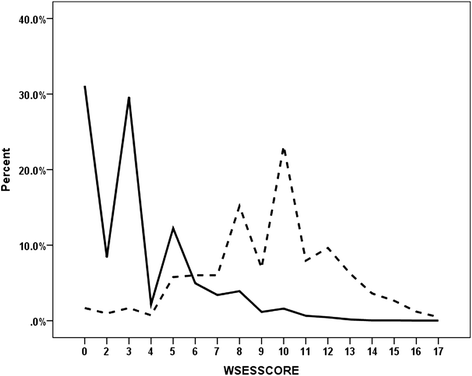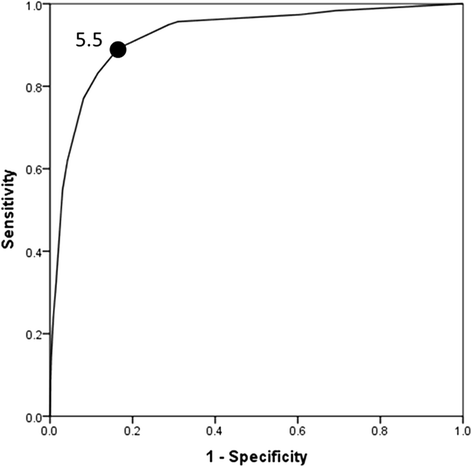Global validation of the WSES Sepsis Severity Score for patients with complicated intra-abdominal infections: a prospective multicentre study (WISS Study)
- PMID: 26677396
- PMCID: PMC4681030
- DOI: 10.1186/s13017-015-0055-0
Global validation of the WSES Sepsis Severity Score for patients with complicated intra-abdominal infections: a prospective multicentre study (WISS Study)
Abstract
Background: To validate a new practical Sepsis Severity Score for patients with complicated intra-abdominal infections (cIAIs) including the clinical conditions at the admission (severe sepsis/septic shock), the origin of the cIAIs, the delay in source control, the setting of acquisition and any risk factors such as age and immunosuppression.
Methods: The WISS study (WSES cIAIs Score Study) is a multicenter observational study underwent in 132 medical institutions worldwide during a four-month study period (October 2014-February 2015). Four thousand five hundred thirty-three patients with a mean age of 51.2 years (range 18-99) were enrolled in the WISS study.
Results: Univariate analysis has shown that all factors that were previously included in the WSES Sepsis Severity Score were highly statistically significant between those who died and those who survived (p < 0.0001). The multivariate logistic regression model was highly significant (p < 0.0001, R2 = 0.54) and showed that all these factors were independent in predicting mortality of sepsis. Receiver Operator Curve has shown that the WSES Severity Sepsis Score had an excellent prediction for mortality. A score above 5.5 was the best predictor of mortality having a sensitivity of 89.2 %, a specificity of 83.5 % and a positive likelihood ratio of 5.4.
Conclusions: WSES Sepsis Severity Score for patients with complicated Intra-abdominal infections can be used on global level. It has shown high sensitivity, specificity, and likelihood ratio that may help us in making clinical decisions.
Keywords: Infections; Intra-abdominal; Sepsis; Septic shock.
Figures


References
-
- Mulari K, Leppäniemi A. Severe secondary peritonitis following gastrointestinal tract perforation. Scand J Surg. 2004;93(3):204–8. - PubMed
-
- Evans HL, Raymond DP, Pelletier SJ, Crabtree TD, Pruett TL, Sawyer KG. Tertiary peritonitis (recurrent diffuse or localized disease) is not an independent predictor of mortality in surgical patients with intra-abdominal infection. Surg Infect. 2001;2:255–65. doi: 10.1089/10962960152813296. - DOI - PubMed
LinkOut - more resources
Full Text Sources
Other Literature Sources
Medical

